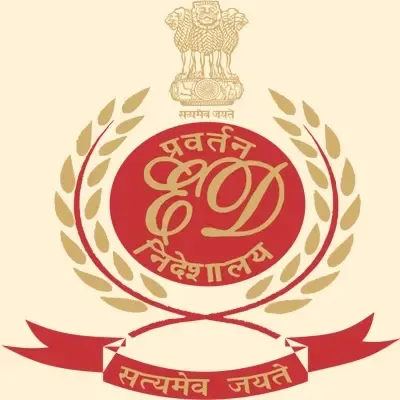Did the ED File a Rs 34.36 Crore Money Laundering Complaint Against Ranjeet Group?

Synopsis
Key Takeaways
- ED filed a Rs 34.36 crore complaint against Ranjeet Group.
- Fraudulent practices inflated credit limits from Rs 7.50 crore to Rs 42 crore.
- Provisional attachment of property worth Rs 27.30 crore.
- Ongoing investigations are expected to unveil more details.
- Highlights the urgency in tackling financial fraud in India.
Bhopal, Sep 29 (NationPress) The Directorate of Enforcement (ED) from the Bhopal Zonal Office has officially filed a Prosecution Complaint (PC) under the Prevention of Money Laundering Act (PMLA), 2002, against M/s Ranjeet Automobiles Pvt Ltd, M/s Ranjeet Motors Pvt Ltd, and other related entities.
This complaint was submitted to the Hon’ble Special Court (PMLA) in Bhopal on September 23, 2025. The court acknowledged the offence on September 26, 2025, marking a significant step in the ongoing investigation into financial misconduct.
The case stems from a First Information Report (FIR) filed by the Central Bureau of Investigation (CBI), STB, Bhopal, under various sections of the Indian Penal Code (IPC), 1860.
Following the FIR, the CBI brought charges against several individuals, leading the ED to initiate its own investigation under the PMLA.
According to the ED’s findings, the accused entities defrauded the Bank of Baroda by obtaining a Cash Credit Limit of Rs 34.36 crore through dishonest means. The investigation revealed that the accused initially acquired a credit limit of Rs 7.50 crore in 2010 through fraudulent methods.
Over the next five years, this limit was inflated to Rs 42 crore by 2015. The ED's investigation further showed that funds, originally intended for legitimate business activities, were redirected to affiliated companies. These misappropriated funds were allegedly used for purchasing real estate and settling loans for its development.
In a notable enforcement action, the ED provisionally attached immovable property worth Rs 27.30 crore in Bhopal on September 16, 2025, under the PMLA. This action was formalized through a Provisional Attachment Order issued on that date.
The ED has announced that further investigations are ongoing to uncover additional details of the alleged money laundering network and identify other parties involved in the financial irregularities.
This case highlights the growing vigilance of enforcement agencies in combating white-collar crimes and financial fraud that undermine the integrity of India’s banking system.









